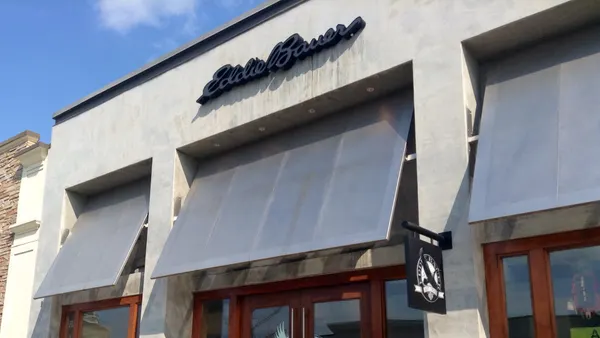Dive Brief:
- The retailer formerly known as Bed Bath & Beyond is suing Hudson Bay Capital Management and HBC Investments to recover over $300 million in “short-swing” profits generated weeks before the now-defunct retailer filed for Chapter 11 bankruptcy.
- Bed Bath & Beyond claims in a lawsuit filed earlier this month in the U.S. District Court for the Southern District of New York that Hudson Bay — which it had struck a deal with to raise cash to avoid bankruptcy — set its own terms to maximize profits in a series of trades last year that it made with insider knowledge.
- A Hudson Bay spokesperson disputed the lawsuit’s allegations in a statement to Retail Dive.
Dive Insight:
The company formerly known as Bed Bath & Beyond claims in court documents that Hudson Bay’s pre-bankruptcy purchases of its equity securities were made at lower prices than the hedge fund subsequently sold them for. “When all was said and done in April 2023, [Bed Bath & Beyond] was bankrupt, while the Hudson Bay Defendants had reaped a short-swing profit of over $300 million,” the company said in court filings.
Bed Bath & Beyond also says Hudson Bay sought to profit from the company’s brief so-called “meme stock” status in which social media-driven speculative interest causes a stock’s volume to spike out of sync with its actual market price and value.
A Hudson Bay spokesperson disputed the allegations. “It is sad that creditors seeking to distract from their significant financial losses have resorted to filing factually flawed and baseless claims in a desperate attempt to extract an undue payment. Hudson Bay supported Bed Bath & Beyond when others would not, and never owned more than 10% of the company’s shares.”
Bed Bath & Beyond filed for Chapter 11 in April 2023. The current iteration of Bed Bath & Beyond under parent company Beyond, which also owns Overstock and Zulily, is not a party to this lawsuit. Overstock.com bought Bed Bath & Beyond’s brand name and intellectual property last summer. Overstock later renamed itself Beyond.
After several years of poor financial and operational performance, by late 2022, Bed Bath & Beyond began to run low on cash. At the beginning of 2023, Bed Bath & Beyond issued a going concern notice and defaulted on its credit line. The retailer also missed interest payments on its bonds.
While weighing its options, Bed Bath & Beyond says Hudson Bay approached the company. Although Hudson Bay had no prior investment in the retailer, the company proposed a financing deal that would leave it with the rights to most of Bed Bath & Beyond’s fully diluted common stock, the lawsuit states.
In February last year, Bed Bath & Beyond set out to raise $225 million by offering preferred and common stock. Long term, Bed Bath & Beyond said it might seek another $800 million in the coming months. But the company filed for bankruptcy about two months later, telling the court it had $1.8 billion in long-term debt.
According to Bed Bath & Beyond’s lawsuit, the deal to do that was drafted by Hudson Bay. It involved issuing three new classes of securities anchored by Hudson Bay. Hudson Bay led the deal’s negotiations, set the terms and subsequently bought most of the shares. The deal terms stated that Hudson Bay couldn’t own more than 9.99% of Bed Bath & Beyond’s common stock, just below the required SEC threshold. But Hudson Bay’s share acquisitions quickly exceeded that cutoff, the lawsuit alleges.
“At the deal’s launch on February 7, 2023, the derivative securities acquired by the Hudson Bay Defendants gave them approximately 80% of [Bed Bath & Beyond’s] total equity on a fully diluted basis, demoting [Bed Bath & Beyond’s] large investor base to minority partners in the firm,” the lawsuit states.
Under SEC rules, insiders who earn short-swing profits must return the proceeds within six months. Bed Bath & Beyond, now known under its bankruptcy winddown legal moniker of 20230930-DK-Butterfly-1, is requesting a jury trial.
















